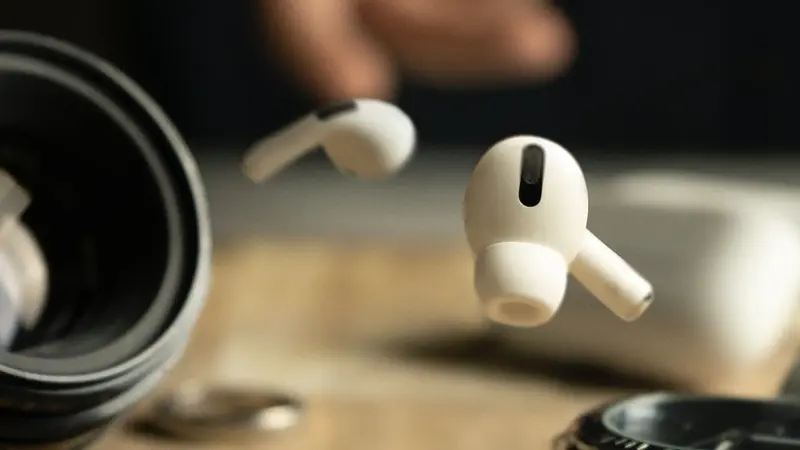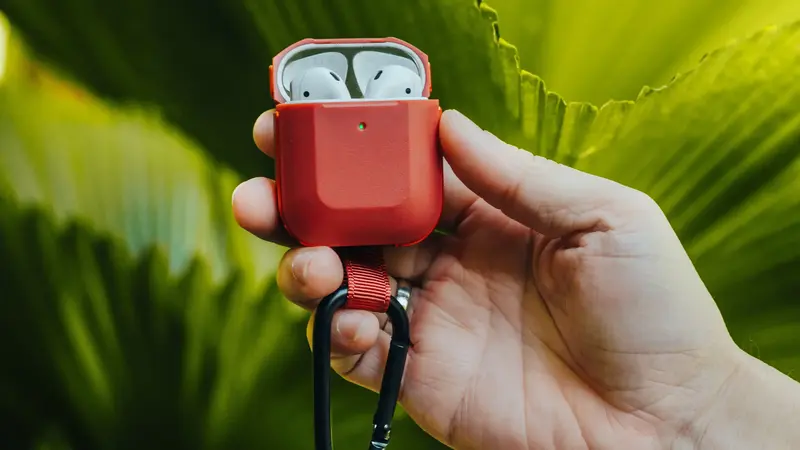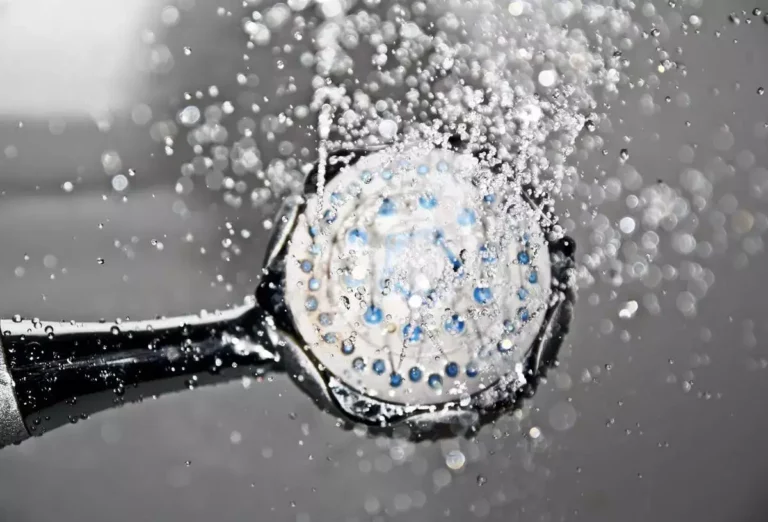Will AirPods Break if You Drop Them? (Solved!)
This site contains affiliate links to products, and we may receive a commission for purchases made through these links.
AirPods have been all the rage lately, and for a good reason. They are sleek and stylish, and most importantly, they work well. But there is one question on everyone’s mind: will AirPods break if you drop them?
The answer is probably not. Apple has designed AirPods to be as durable as possible and made from high-quality materials. That being said, it is still possible to damage them if you drop them from a high height or onto a hard surface. So don’t go throwing them around recklessly.
In this blog post, I will discuss how durable Airpods are, what materials they are made from, and how to avoid damaging them. By the end of this post, you will know everything there is to know about AirPods and dropping them.

Will AirPods Break if You Drop Them?
Airpods can withstand a fall of up to ten feet without breaking, according to testers. They should be fine if you accidentally drop them while walking or running.
However, if you drop them from a higher height or onto a hard surface, there is a chance that they could break.
Why Will AirPods Not Break When You Drop Them?
Apple has designed AirPods to be as durable as possible but not indestructible. It is still possible to damage them if you drop them on a hard surface or from a high height.
They are made from high-quality materials that withstand a lot of wear and tear. In addition, the design of AirPods makes them less likely to break when dropped.
The following factors make AirPods less likely to break when you drop them:
1. Rigid Plastic Coat
Airpods are coated in rigid plastic that helps to protect them from impact. This plastic is tough and can withstand a lot of force before breaking.
The AirPod’s plastic casing is not excessively robust, but it is thick enough to protect the electrical components in the earphones from outside damage.
2. Internal Reinforcement
In addition to the rigid plastic coating, Airpods also have internal reinforcement that helps to keep them intact if they are dropped. This reinforcement helps to absorb shock and prevent the Airpods from breaking.
3. No Cables
Another factor that makes Airpods less likely to break is their lack of cables. This means that fewer parts can come loose or be damaged if they are dropped.
4. Lightweight Design
Airpods are designed to be lightweight and compact. This makes them less likely to break when dropped because they have less mass.
5. Sturdy Design
The overall design of Airpods is also very sturdy. The stems are made from a strong metal less likely to bend or break, and the earbuds are designed to be as compact as possible.
This makes them less likely to come apart if they are dropped.

3 Tips for How to Avoid Damaging AirPods
Even though AirPods are designed to be durable, it is still possible to damage them if you’re you’re not careful.
Here are a few tips to help you avoid damaging your AirPods.
1. Don’t Drop Them
This may seem obvious, but the best way to avoid damaging your AirPods is not to drop them in the first place. Be careful when handling them and try to keep them safe from falls.
2. Use a Case
Another way to protect your AirPods is to use a case. Many cases are available that can help cushion them if they are dropped. The cases are made of soft materials that will help absorb a fall’s impact.
READ MORE! How Durable are AirPods Cases? (Solved!)
3. Be Careful with the Charging Case
The charging case that comes with AirPods is also fragile and can be easily damaged. Be careful when handling it and avoid dropping it.
If you drop it, make sure it doesn’t land on its corner.
READ MORE! Can I Use My Airpods If The Case Doesn’t Work? (Solved!)
What To Do When You Drop Your AirPods
There is no need to panic if you drop your AirPods. Follow the steps below to confirm whether they are in good working condition:
Step One: Ensure You Don’t Step on Them
It is important that you check to make sure your AirPods are not stepped on or damaged in any way. If they appear to be undamaged, proceed to the next step.
Step Two: Check for Damage
Once you have confirmed that your AirPods are not stepped on, it is time to inspect them for damage.
Look for any cracks, dents, or other signs of damage. If you find any damage, proceed to the next step.
Step Three: Test Them Out
If your AirPods appear undamaged, it is time to test them out. Put them in your ears and see if they are still working correctly.
Make sure there is no sound coming from only one earbud. If everything sounds normal, your AirPods are most likely still in good working condition.
What To Do if Your AirPods Are Not Working Properly

If you find that your AirPods are not working properly after you drop them, there are a few things you can try to fix the problem:
Restart Your Device
One of the first things you should try is restarting your device. This can often fix minor software issues that may be causing problems with your AirPods.
Update Your Software
If restarting your device doesn’t fix the problem, try updating your software. This can sometimes resolve bugs that are causing issues with AirPods.
Reset Your AirPods
If you’re still having issues with your AirPods, try resetting them. This will delete all of your custom settings and restore them to their factory defaults.
Replace the Ear Tips
If you’re still experiencing problems with your AirPods, it is possible that the ear tips are damaged. Try replacing them with new ones to see if that fixes the problem.
Contact Apple Support
If you’re still having issues with your AirPods, contact Apple Support. They may be able to help you troubleshoot the problem or replace your AirPods if they are damaged.
Final Thoughts
Airpods are designed to be durable, but they are still fragile and can be easily damaged if you’re not careful. They may not break when you drop them, but they can still be damaged. Be sure to follow the tips above to help avoid damaging your AirPods.
I hope this article has helped you! Thank you for reading.

Espen
Espen is the Director of ProPairing and has written extensively about Bluetooth devices for years. He is a consumer product expert and has personally tested Bluetooth devices for the last decade.






